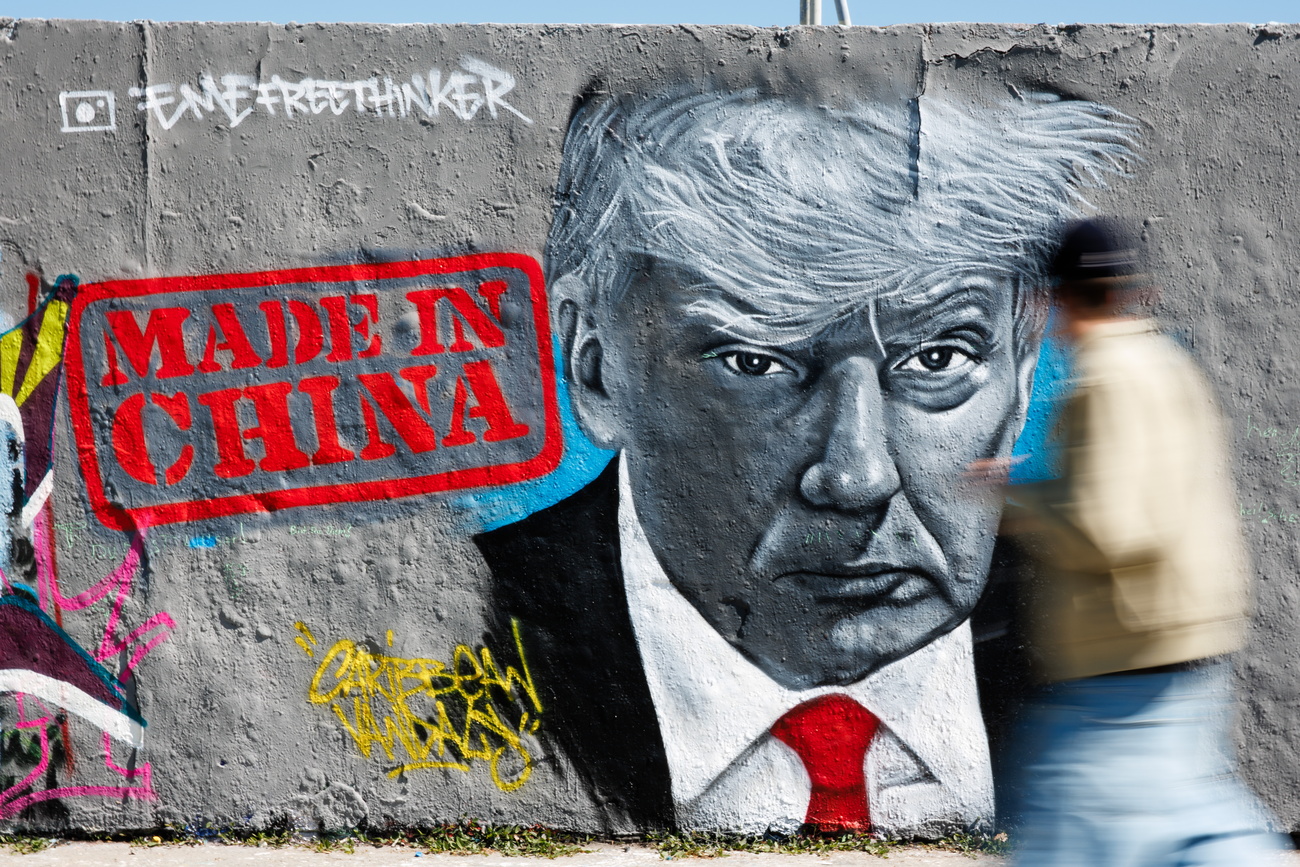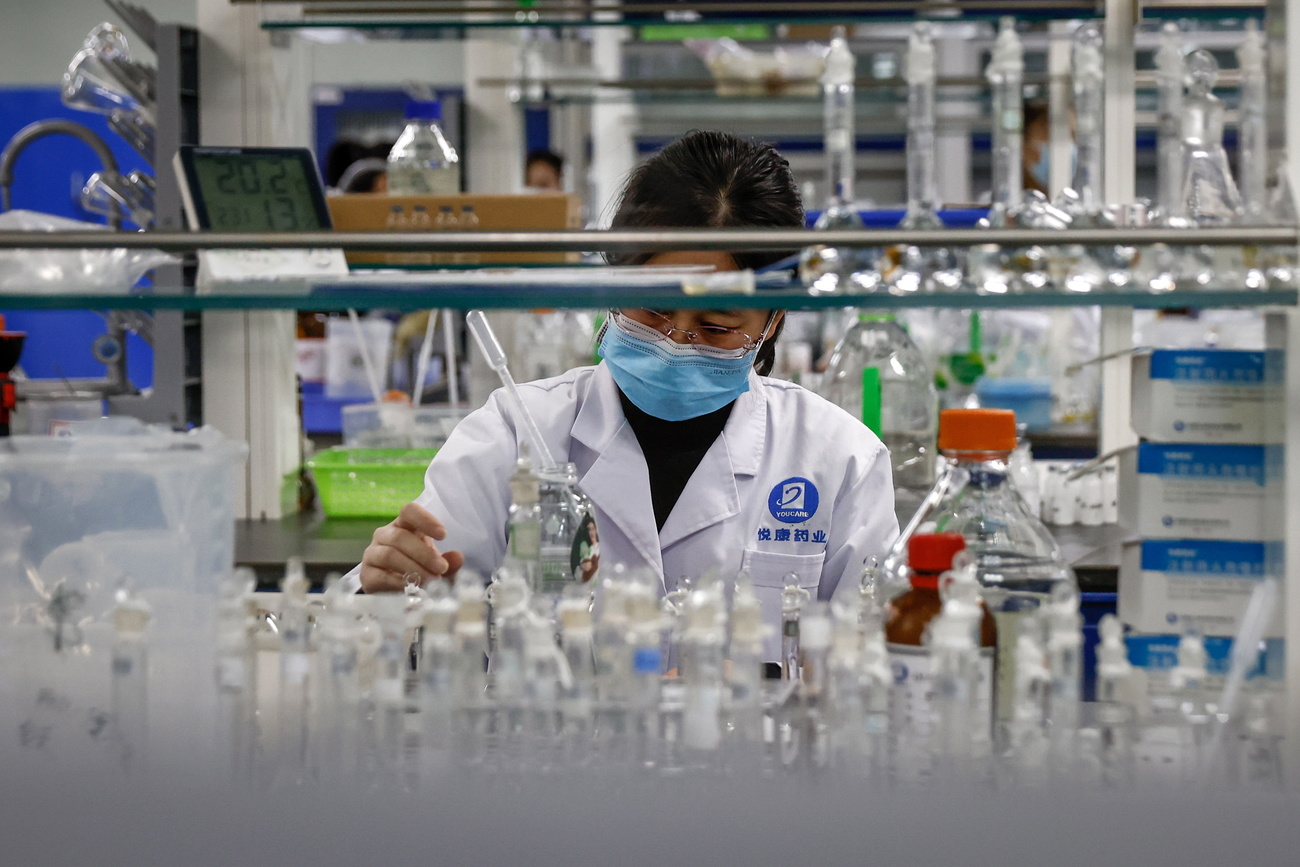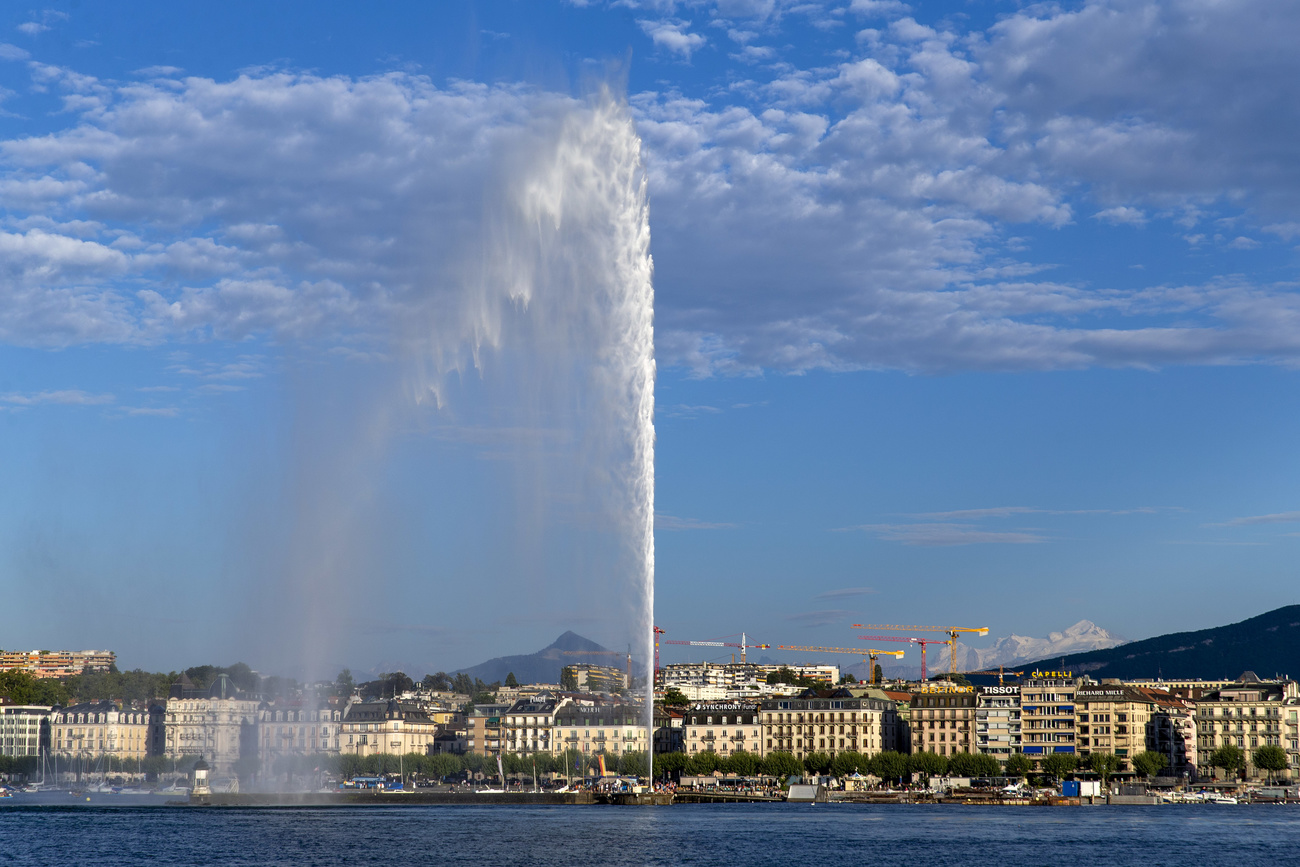
China–US tariff talks place Swiss diplomacy on centre stage

Trade talks this weekend in Geneva between China and the US are seen as a diplomatic win for Switzerland that's been increasingly sidelined in international affairs.
This weekend representatives of China and the United States are meeting in Switzerland to talk tariffs and on how to de-escalate their ongoing trade war.
The negotiating teams led by US Treasury Secretary Scott Bessent and China’s economic tsar He LifengExternal link, are expected to discuss reductions to the broader tariffs, Reuters news agency reported. The talks should also cover duties on specific products, export controlsExternal link and Trump’s decision to end de minimisExternal link exemptions on low-value imports.

More
Trump hails ‘great progress’ at US-China trade talks in Geneva
This will mark the first official discussion between the world’s two largest economies as they seek to resolve a wave of escalating tit-for-tat tariff hikes, triggered shortly after Trump’s inauguration in January, that have rattled global markets.
The talks come also as a win for Swiss diplomacy which has positioned itself as neither pro nor against either economic heavyweight. The US and China are Switzerland’s second- and third-largest trading partners, respectively. Since returning to the White House, American President Donald Trump has launched a trade war against the US’s main economic rival by imposing new import tariffs of up to 145% on Chinese goods, prompting Beijing to retaliate with tariffs of up to 125% on certain American products.
The talks are viewed by analysts as a starting point for de-escalation and long negotiations to ease trade tensions.
More
Win for Swiss diplomacy
The Swiss Foreign Ministry confirmed it had sought contact with China and the US to convince both sides to speak in Geneva, which has a long tradition of hosting international talks and bringing opposing parties around the table.
Around two weeks ago, three Swiss government ministers upended their agendas to travel to China and the United States. Two weeks ago, Foreign Minister Ignazio Cassis made a surprise stop in China whilst on a return trip from Japan. A China visit had originally been scheduled for later in the year. On April 8, Economics Minister Guy Parmelin traveled to the US alongside Finance Minister Karin Keller-Sutter. Parmelin’s visit was not on his official agenda.
Switzerland is also hoping to convince the US to lift tariffs imposed on Swiss imports which total 31% – more than its European neighbours. It remains unlcear if Parmelin’s visit and Switzerland hosting the talks on Saturday will be enough to sway Trump.
Power struggle
For the past weeks the US and China insisted that the other side were initiating talks. A fact both parties have denied.
Beijing has emphasised that the upcoming trade talks were arranged at the request of the US. A spokesperson for China’s Ministry of Commerce stated on May 7 thatExternal link senior US. officials had signaled a willingness to adjust tariff measures.
“Through various channels, senior US officials proactively conveyed information to China,” the spokesperson said. “After fully considering global expectations, China’s own interests, and appeals from US industry and consumers, China has decided to engage with the US.”

More
Chinese biotechs eye Swiss collaboration as relations with US sour
Days earlier, US Secretary of State Marco Rubio told Fox NewsExternal link, China was urgently seeking trade talks, claiming that “the Chinese are reaching out. They want to meet. They want to talk.”
“The Trump administration made a miscalculation when launching the trade war, thinking Chinese would be as pliant as it was during the Trump 1.0 period, willing to accommodate and make concessions,” says Lanxin XiangExternal link, an expert on relations between China, the US and Europe and an emeritus professor of history and international relations at the Geneva Graduate Institute.
During his first term, the Trump administration raised tariffs on $200 billion worth of Chinese goods from 10% to 25%. In retaliation, Beijing imposed tariffs ranging from 5% to 25% on $60 billion worth of US imports.
However, under a Phase One trade deal signed in early 2020, China made certain concessions, committing to purchase $200 billion worth of US goods and services over the following two years. The agreement also retained most of the US’s tariffs on $360 billion worth of Chinese goods.
But now that China holds a markedly different – and much stronger – economic and geopolitical position compared to that period, Xiang says. “It is hard for Xi Jinping to appear weak this time.”
Though China’s nominal GDP still lags that of the US, it has gained considerable geopolitical clout in the past decade notably through massive investment in its Belt and Road initiatives in Asia and the African continent. It is also positioning itself as a champion of trade and defender of multilateralism as well as leader of the Global South in opposition to Trump’s protectionist policies.
“The US side, especially President Trump, was more desperate (to talk) due to domestic political pressure and signaled their eagerness to talk, while Chinese leaders had played hard-to-get,” says Zhiwu ChenExternal link, a professor of finance at The University of Hong Kong and former professor at Yale University,
“Neither side wanted its domestic audience to think that they have surrendered to the other side and look weak, so they chose to meet in a third, neutral country,” Chen told SWI swissinfo.ch.
Switzerland back on the map?
The upcoming talks are important for Switzerland keen to remain a key player on the international scene. The country has a long history of hosting high level talks between world leaders as illustrated a summit in 2021 between former US President Joe Biden and Russian President Vladimir Putin.

More
Biden-Putin summit: Why Geneva?
However, the Russian invasion of Ukraine in 2022, and an increasing polarised world have challenged Switzerland’s neutrality and its ability to mediate global conflicts. Last June, Russia was excluded from a Swiss-led Ukraine peace summit after dismissing the event as “futile,” while China also declined to participate. Their absence was a rebuke to Swiss diplomacy and hampered any meaningful outcome towards a ceasefire.
In March, Switzerland canceled a conference on the application of the Geneva Conventions to the occupied Palestinian territories due to a lack of participants, many of whom had expressed dissatisfaction with the final joint declaration.
This has inevitably raised questions among Swiss politicians and analysts about whether Switzerland’s status as a primary venue for talks and negotiations between countries in conflict or dispute is still relevant.

More
Failure of Middle East conference in Geneva reflects ‘too divided’ international society
Xiang believes that Swiss role in peace-making is still irreplaceable – as long as the country remains neutral. “So far, no other country can perform the same function,” he says.
However, he adds Switzerland can merely provide a platform for dialogue as a host nation, while its capacity to mediate between two superpowers with deep-rooted differences remains considerably limited – particularly on sensitive geopolitical issues such as Taiwan and the South China Sea.
“The difference in values and priorities between the US and China is simply too vast and fundamental for any third country to bridge,” explains Chen.
At time of publication expectations remained low on the outcome of the negotiations, with the talks aimed more at reinitiating dialogue and trust than tackling details of scaling back tariffs.
“I don’t think any concrete result will come out of this first meeting, especially given the total lack of trust between the two countries right now. The most important thing for this meeting is for each side to tell the other what its position is and what demands must be met by the other side,” Chen said.
US media The New York Post on Thursday quoting sources close to the negotiations, reported that the US could potentially announce proposal to lower levies on China goods to between 50% and 54%.
Edited by Virginie Mangin/ac

More
Our weekly newsletter on geopolitics

In compliance with the JTI standards
More: SWI swissinfo.ch certified by the Journalism Trust Initiative






























You can find an overview of ongoing debates with our journalists here . Please join us!
If you want to start a conversation about a topic raised in this article or want to report factual errors, email us at english@swissinfo.ch.